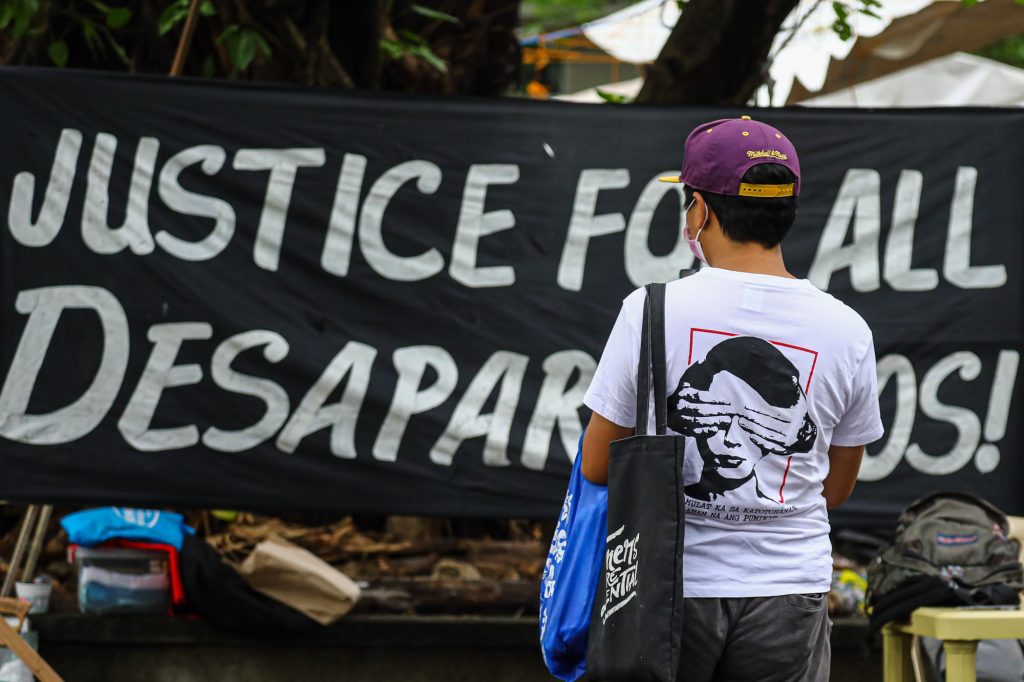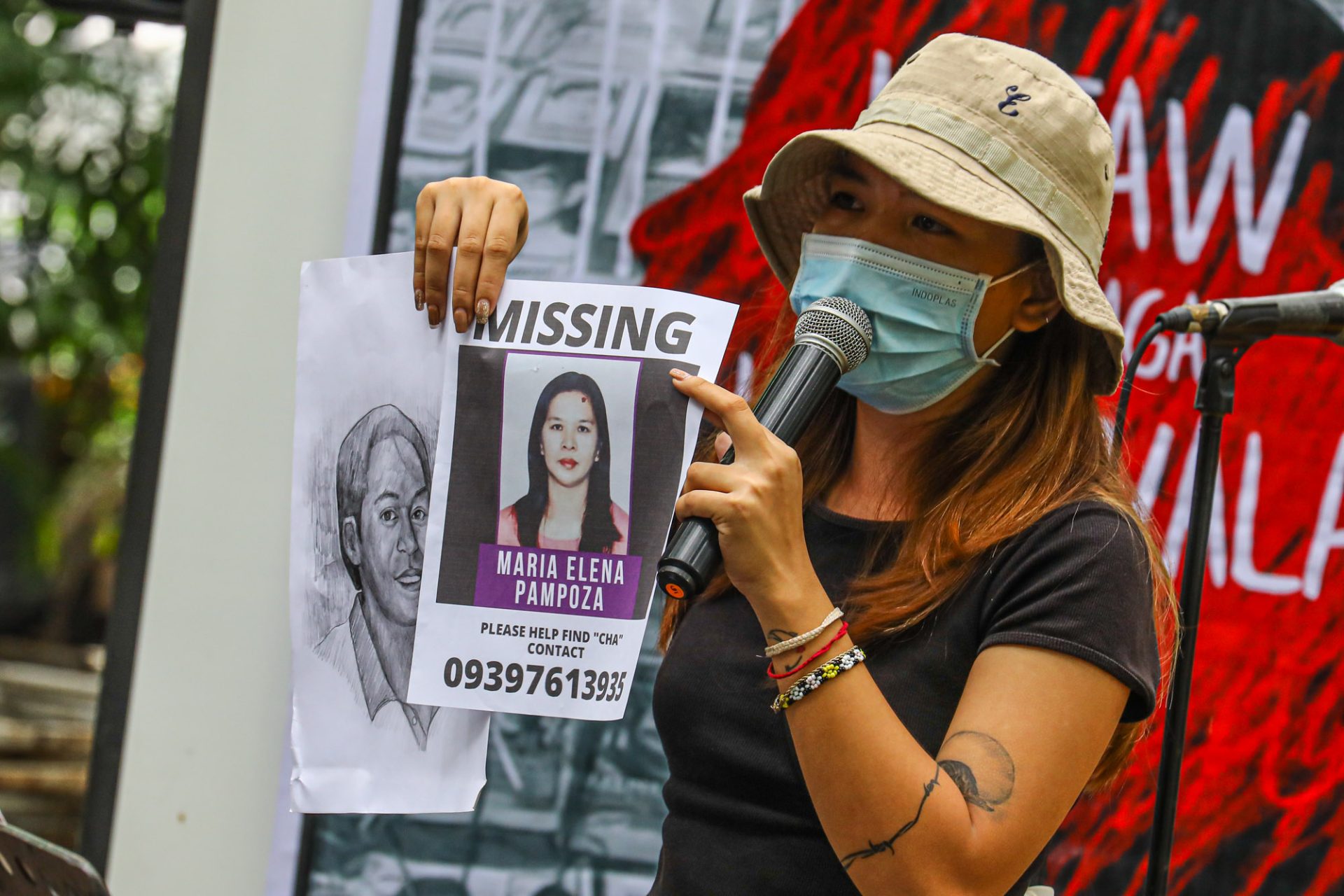To mark the International Day of the Disappeared on Tuesday, August 30, families and friends of victims of enforced disappearances in the country renewed their call to surface the 1,900 desaparecidos since the years of the Marcos dictatorship in the 1970s.
“From Ferdinand Marcos Sr.’s bloody martial rule to his son’s current regime, hundreds of people … were forcibly taken and disappeared by state forces in their attempts to stifle dissent,” said Isabel Batralo, vice chairperson of the group Families of the Disappeared for Justice.
She scored what she described as the government’s “seeming disinterest” in addressing cases of disappearances through the years,” despite the enactment of Republic Act 10353 or the Anti-Enforced or Involuntary Disappearance Act in 2012.
“All of us, families of desaparecidos, still don’t know what happened to our loved ones,” said Batralo, adding that some of the relatives have even died already “without seeing a glimmer of justice nor having even a slightest hint to their loved ones’ whereabouts.”
“What good is this law if it can’t punish those who perpetrate enforced disappearances? When will we see the day when the government ratifies and/or implements laws and conventions, according to its obligations?” she said.
Batralo called on the public to strengthen their support to families and friends of victims of involuntary or enforced disappearances and other human rights violations.
“Now is the time to let our voices speak the truths about our loved ones and strengthen demand for justice. We will not forget, and we will uphold justice and people’s rights,” she said.

The Philippines has more than 600 outstanding cases of enforced disappearances based on the 2021 report of the UN Working Group on Enforced or Involuntary Disappearances.
Despite the existence of Republic Act 10353 or the Anti-Enforced Disappearance Act of 2012, the Philippines is not a signatory nor a party to the UN Convention on Enforced Disappearances.







